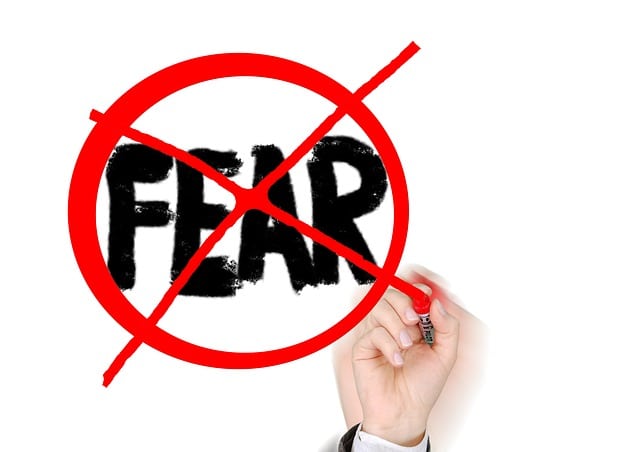On this page we’ll look at effective breathing exercises for anxiety that you can use today.
There may be recommended product links in this post. If you click one of these links and buy, the small commission I recieve will help support me run this with depression. Thank you!

Image source: https://www.drweil.com
Anxiety and Depression can disrupt your breathing pattern usually causing short, labored breaths that come directly from the chest (thoracic breathing). This in turn, increases the carbon dioxide content in your body making you more vulnerable to anxiety, panic attacks and fatigue.
The link between carbon dioxide and anxiety and panic disorder is clear (Valenca et al.) Essentially, Depression is inter-linked with your breathing pattern. Therefore, these breathing exercises for anxiety should be very helpful to anyone suffering from anxiety, stress or depression.
Interesting ways in which you can determine whether you’re breathing right is by placing one of your hands on your abdomen and the other on your chest and breathe to see which part expands more. If it’s your abdomen, then there’s no need to worry but if it’s your chest then you’ll know why you’re feeling dizzy or stressed. It’s the lack of oxygen in your body due to the nature of your breathing pattern. Hence, the first breathing exercise towards stopping an impending attack of anxiety and Depression is:
BREATHING THROUGH YOUR ABDOMEN
- Focus on slowly inhaling through your nose. Make sure that your abdomen expands while maintaining your chest movement to the bare minimum.
- Now gradually exhale the air through your mouth, pursing your lips and keeping your jaw relaxed.
- Repeat for a few minutes
You can keep doing this exercise whenever you feel the need to. Not only is it correcting your breathing pattern by replenishing your body with more oxygen whilst removing most of the carbon dioxide, but it is also helping you relax. And as you feel your body relaxing, you’ll notice your anxiety subsiding. This form of breathing relaxation is also helpful for combating any situation you find stressful.
BREATHE COUNTING
This is a very popular Zen breathing technique that allows your mind to de-stress. For best results, straighten your spine and incline your head towards the front. Now close your eyes and take a few breaths. After, allow yourself to naturally breathe without trying to influence it. You’ll see that your breaths have become slower but of course, the rhythm and depth will vary. Now you can begin!
- Count your breath as you exhale as 1 and go up to 5 breaths
- Repeat the cycle from 1 after your fifth breath
- Keep doing it for ten minutes or so
It takes a lot of patience and focus to keep doing this exercise successfully for ten minutes and initially you’ll find yourself counting up to more than 5 and forgetting this important rule. But at the end of the day, it’s to keep your mind occupied from anxiety and Depression which it very easily accomplishes! In this regard, it is a great form of treatment for depression and anxiety.
- CARBON DIOXIDE REBREATHING
Above we established that anxiety can be caused by an accumulation of carbon dioxide in your body, but in certain cases as in hyperventilation, your body tends to take in too much oxygen leaving very little carbon dioxide in your body. So to correct this, either, envelop your mouth with a bag (plastic or paper) or your hands and breathe normally. This will allow the carbon dioxide that your body is exhaling to be inhaled in since the air you’re breathing in now is concentrated with carbon dioxide. Thus, correcting the balance of these two very important gases in your bloodstream and helping you stop an anxiety attack.
- THE 4-7-8 BREATHING TECHNIQUE
This is a fairly simple technique. Although, its effects are fairly subtle in the beginning they gain in intensity as you do it more often. Don’t do it more than twice a day. And if you feel too lightheaded while doing this, don’t worry because it’ll pass. For this exercise no special position is necessary but it is preferred you do it sitting with your back upright. The tip of your tongue should be placed on the ridge of the upper cavity behind your front teeth. And this is where your tongue should remain for the entirety of the exercise.
- Exhale through your mind making a whoosh sound
- Now close your mouth and inhale through your mouth as you count to 4
- Hold your breath till a count of 7
- Now exhale completely through your mouth as you count to 8 and making a whoosh sound
- This is one breath. To complete a cycle you must repeat till you have completed four breaths.
- YOGA BREATHING
This is an extremely relaxing yoga technique. Albeit, a little complicated but you’ll find that if you follow this correctly, you’ll feel a lot better.
- Start on the right by placing your right thumb over your right nostril while breathing in through your left nostril.
- Now put your right ring finger on your left nostril and exhale from the right one
- Leave your ring finger where it is and inhale from the left
- Now switch to the right side by putting your thumb on the right nostril and exhaling through the left
Well, I hope you’ll give these breathing exercises for anxiety a try and see yourself easily preventing an anxiety attack!
Author Bio:
This guest post was written by Hassan Khan Yousafzai, he is passionate about Digital marketing. Along with educational background in Software Engineering he is bridging gap between marketing and development department. At Techvando, he has been consulting brands all over Pakistan to gain online traffic and profitable leads.


 Karl Perera is a fully qualified Life Coach, Teacher and Author of
Karl Perera is a fully qualified Life Coach, Teacher and Author of